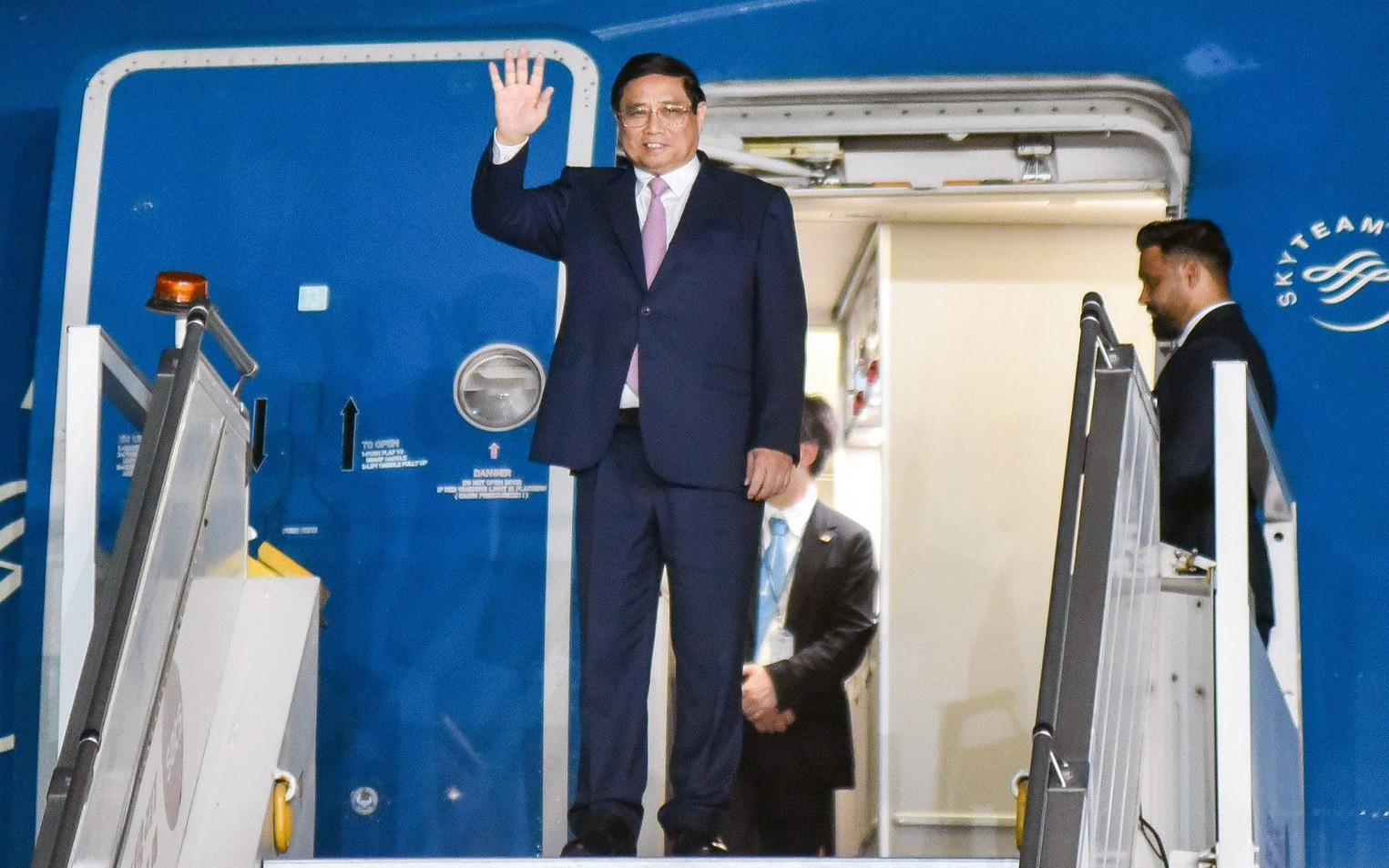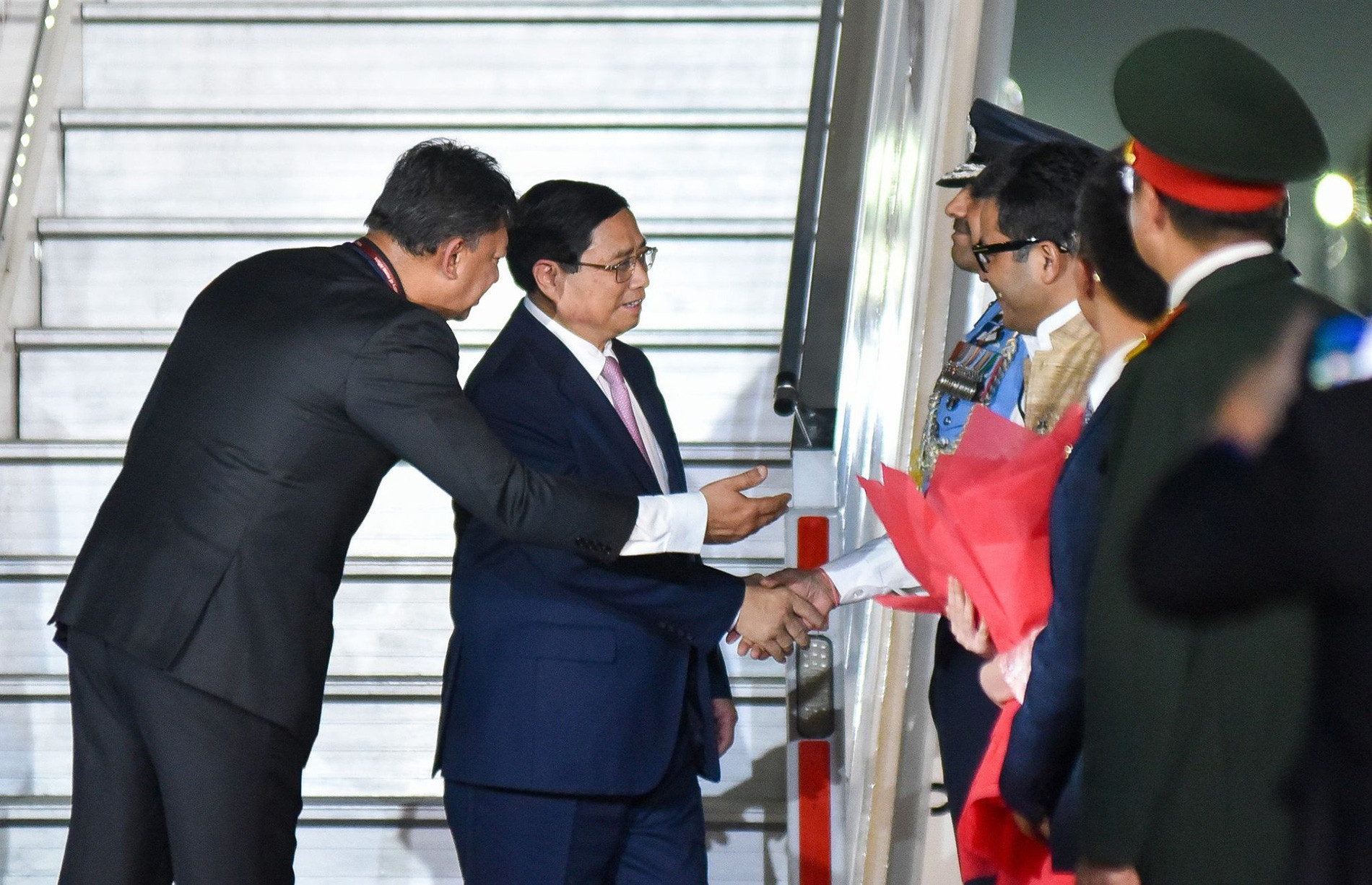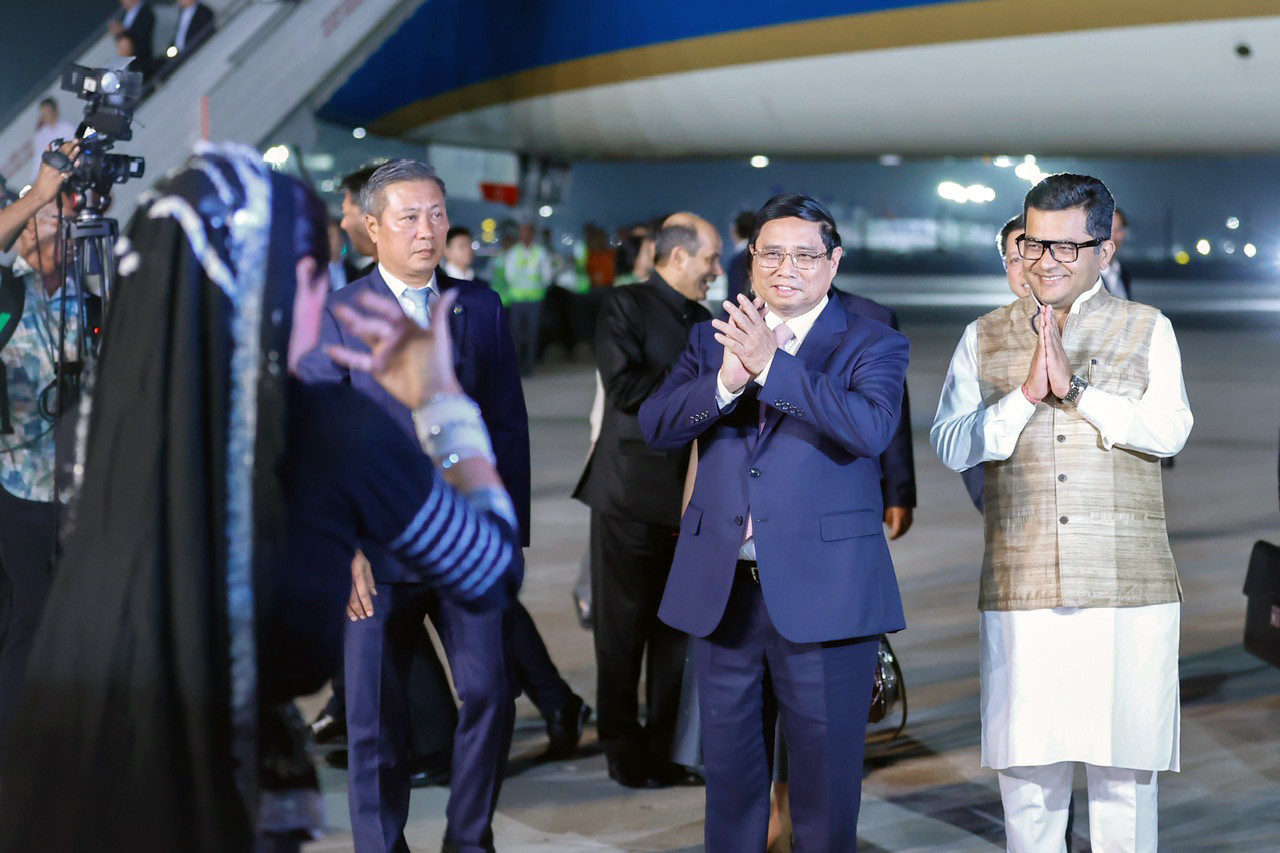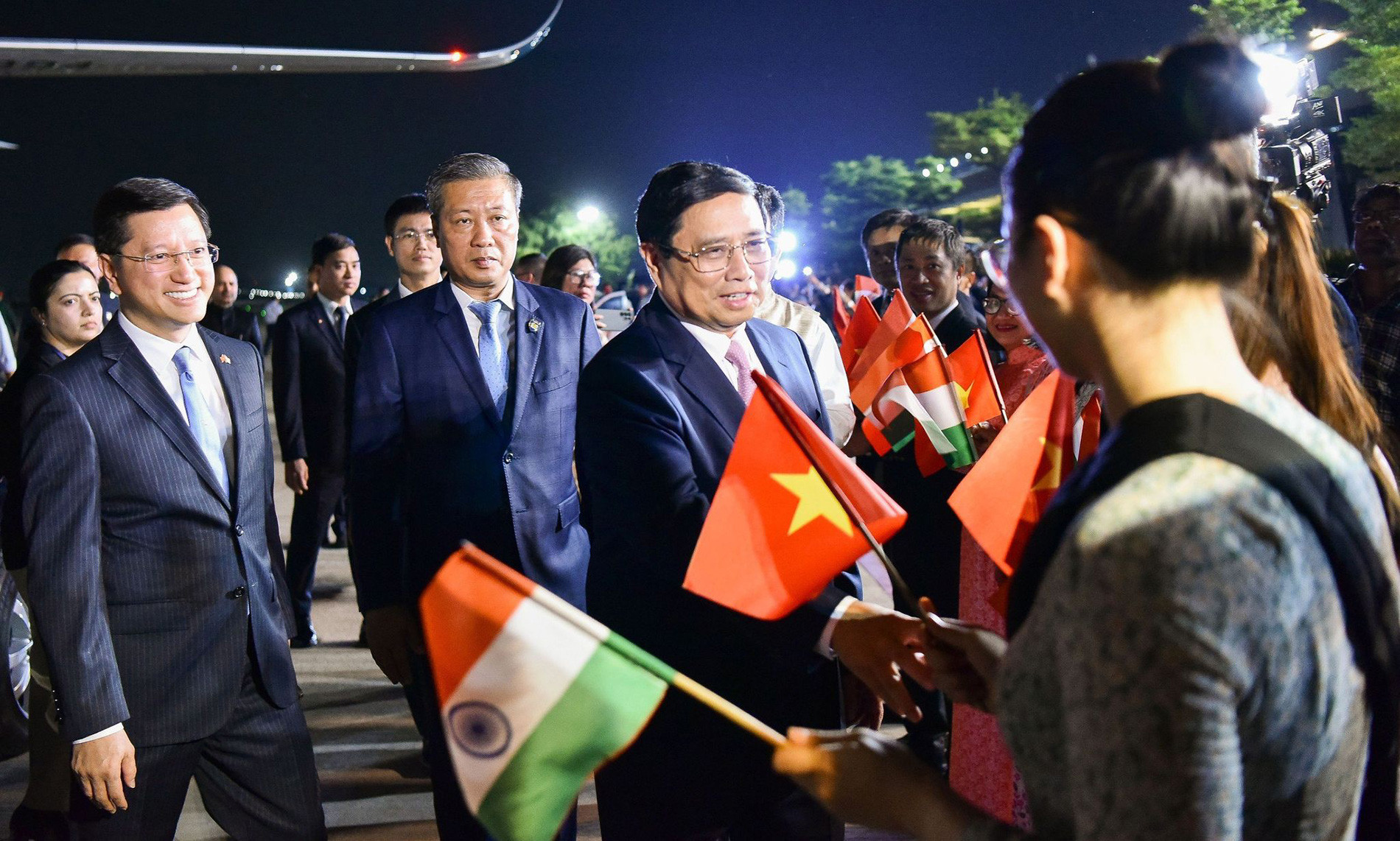Responding to an invitation from Indian Prime Minister Narendra Modi, the Prime Minister's visit will take place from July 30 to August 1.

Accompanying the Prime Minister are: Minister and Head of the Government Office Tran Van Son; Minister of Foreign Affairs Bui Thanh Son; Minister of Industry and Trade Nguyen Hong Dien; Minister of Planning and Investment Nguyen Chi Dung; Minister of Science and Technology Huynh Thanh Dat; Minister of Health Dao Hong Lan; Director General of Voice of Vietnam Do Tien Sy; Deputy Minister of National Defense Hoang Xuan Chien; Deputy Minister of Public Security Pham The Tung; Deputy Head of the Central Foreign Affairs Committee Ngo Le Van.
Greeting the Prime Minister and the Vietnamese delegation at Palam Airport were Indian Minister of State for External Affairs Pabitra Margerita, Indian Ambassador to Vietnam Sandeep Arya, and the Chief of Protocol from India's Ministry of External Affairs. On the Vietnamese side, the reception included Vietnamese Ambassador to India Nguyen Thanh Hai, Consul General in Mumbai Le Quang Bien, and staff from the Vietnamese Embassy in India.

On the first working day in India, the Prime Minister will meet leaders of major Indian conglomerates, including Gautam Adani - Chairman of the Adani Group, Dharmesh Shah - Founder and Chairman of BDR Pharmaceuticals, and Arun Kumar Singh - Chairman of ONGC.
Additionally, the Prime Minister will attend and speak at the Vietnam-India Business Forum, announce the new Da Nang - Ahmedabad flight route, and welcome the 200 millionth passenger of Vietjet Air.


The Prime Minister will also lay flowers at the statue of President Ho Chi Minh, inaugurate the new Vietnamese Embassy headquarters in India, and meet with embassy staff and the Vietnamese community in India.
The official welcome ceremony will take place on the morning of August 1. Following this, the Prime Minister will hold talks with Indian Prime Minister Narendra Modi and witness the signing of cooperation agreements between the two countries.

On the second day of the visit, the Prime Minister will meet with President of India Droupadi Murmu, Vice President and Chairman of the Rajya Sabha Jagdeep Dhankhar, and Speaker of the Lok Sabha Om Birla.
Another significant event will be the Prime Minister's speech at the Indian Council of World Affairs.
This visit takes place following India's successful 18th Lok Sabha elections and the re-election of Prime Minister Narendra Modi for a third consecutive term. The Prime Minister is one of the first foreign leaders invited to visit India after the elections and the formation of the new government.
This is also the first visit since the two countries established the Comprehensive Strategic Partnership in 2016.
The visit aims to affirm Vietnam's consistent policy of valuing the traditional friendship and Comprehensive Strategic Partnership with India, enhancing relations between the leaders of the two countries, particularly between the two Prime Ministers.
Through various meetings and engagements, the two sides will reinforce traditional areas of cooperation while exploring potential fields such as electronics, telecommunications, biotechnology, pharmaceuticals, renewable energy, green economy, digital economy, AI, semiconductors, new materials, and essential minerals.
India, with an area of nearly 3.3 million square kilometers and a population of 1.4 billion, has a GDP of $1.94 trillion and a per capita income of $1,385.
India's economy is growing at the fastest pace in the world, with an 8.2% GDP growth rate in the 2023-2024 fiscal year. It is among the top 10 economies attracting the most FDI in 2024, reaching $71 billion.
India's stock market is the fourth largest globally, with foreign reserves hitting a historic high of $651.5 billion.
India has surpassed the UK to become the world's fifth-largest economy with a GDP of $3.1 trillion. The country's economy is expected to grow by 7% in both 2024 and 2025.
India's role and position in the region and the world are steadily increasing. The country pursues a multi-aligned foreign policy, maintaining balanced relations with major powers (the US, Russia, Japan, Australia), and is a member of QUAD, BRICS, leading numerous regional and global initiatives, and successfully chaired the SCO and G20 in 2023.
In East Asia, India continues to promote its "Act East" policy, strengthening closer and more effective relations with ASEAN, and has a positive stance on the East Sea issue.
Thu Hang